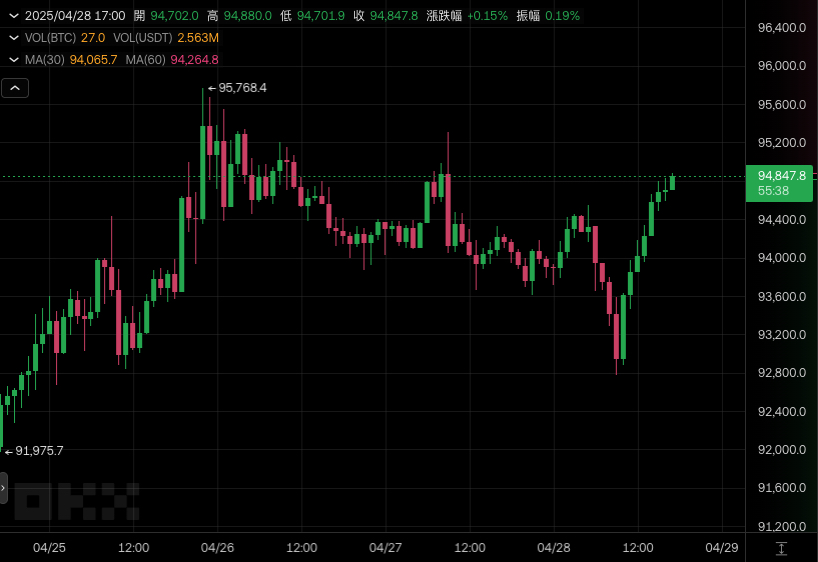Against the backdrop of increasing global economic uncertainty, Bitcoin (BTC) has recently demonstrated strong resilience, continuously fluctuating around $95,000 and achieving positive returns this year. This robust price performance stands out particularly amid global market pressures.

Bitcoin's Correlation Shift: Moving Away from Tech Stocks, Closer to Gold
In recent months, Bitcoin's price fluctuations were often highly correlated with tech stocks, especially with the Nasdaq 100 Index. However, the latest market data reveals that this relationship is undergoing a structural change.
According to CoinDesk market analysis, Bitcoin's 30-day correlation with gold has risen to 0.70, significantly higher than its 0.53 correlation with the Nasdaq 100 Index. AInvest data also shows that Bitcoin's correlation with the S&P 500 has dropped to 0.65.
Overall, recent data indicates Bitcoin and gold are becoming closely intertwined again. This change may reflect a market reassessment of Bitcoin's characteristics, with the "digital gold" narrative accelerating and more investors beginning to view it as a potential hedge asset.
Hedging Attraction and Challenges Amid Economic Headwinds
The International Monetary Fund (IMF) predicts global economic growth will slow in 2025. Meanwhile, economic background analysis mentions global goods transportation slowing due to tariffs, further intensifying economic uncertainty.
In this environment, demand for traditional hedge assets like gold naturally increases. Expert perspectives, such as JPMorgan analysts, emphasize gold's stronger demand during periods of economic uncertainty. Bitcoin, as a non-sovereign digital asset not controlled by a single country, is gradually becoming more attractive to investors seeking a hedge.
However, Bitcoin's narrative as a hedge asset still faces significant challenges, most notably its extreme volatility, which contradicts gold's thousands-of-years image as a stable value storage method. Some institutions and economists doubt its hedge status, believing speculative elements remain strong. Regulatory uncertainty, technological risks, and energy consumption issues are also obstacles to its widespread adoption as a mainstream hedge asset.
In this era of constant change, Bitcoin's journey and the evolution of its market positioning are undoubtedly an important chapter in the history of digital asset development.






